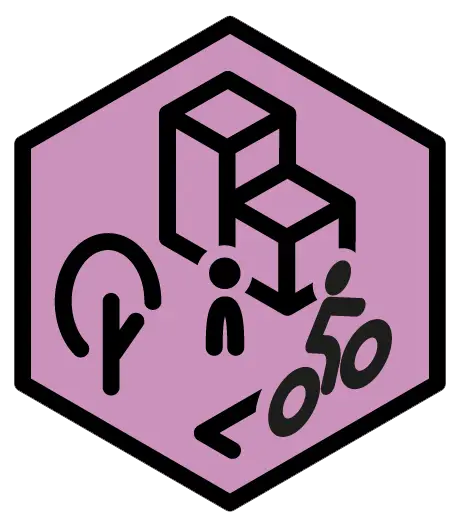
What is
MOSAIQ?Do you have questions about the project or want to contact us?
Call us on 01575 /6400400 - every Monday from 9-11am. Or use our Contact form!
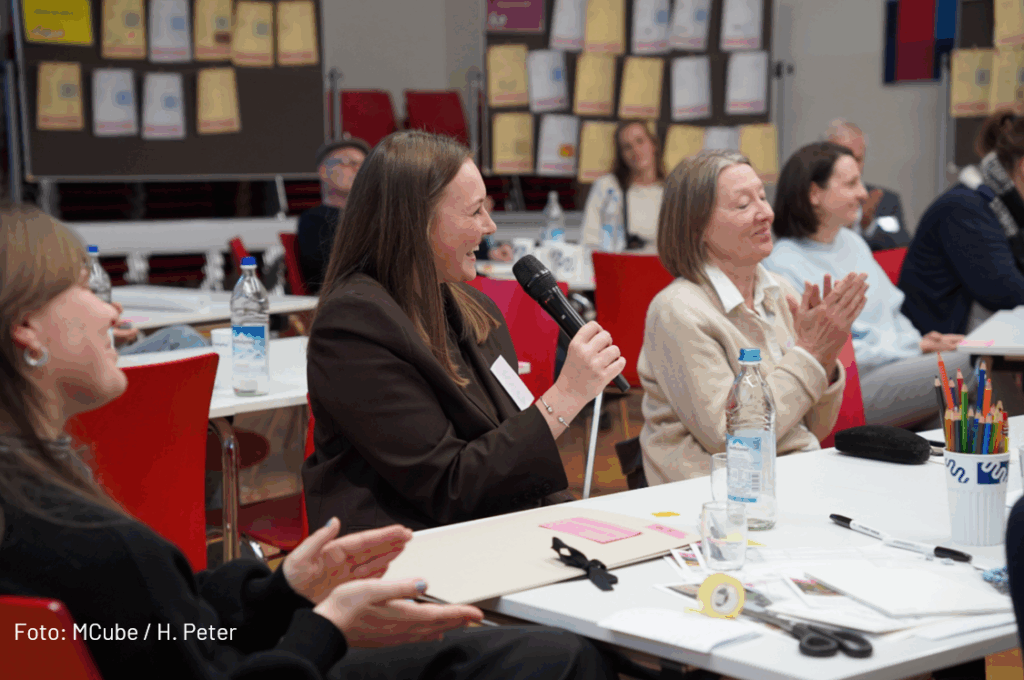
Working together with experts in small groups on exciting project outlines? That was the plan for the day for committed citizens from the MOSAIQ project quarter in Schwabing-West last Saturday (15.11.2025). In the project forge, concrete approaches for the neighborhood were developed from ideas collected in advance in the neighborhood. The project outlines make creative proposals for increasing the quality of life in the neighborhood, for example, or for new mobility solutions and climate adaptation.
The Project Forge is part of the MOSAIQ Ideas Forum. You can find more information about the ideas forum, what happens to the project outlines now and when the project outlines will be exhibited at here.
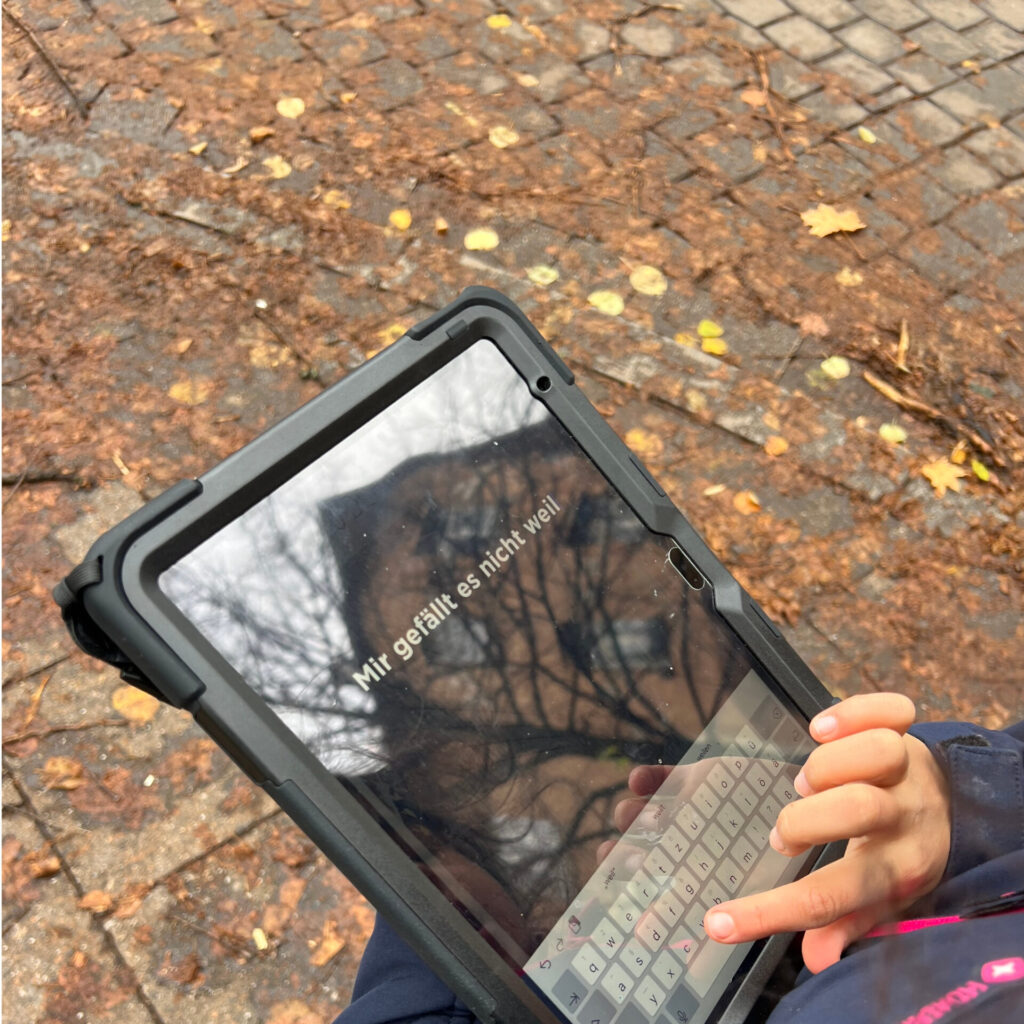
Where do children like to move and where do they like to spend time? Where not and why? Pupils from class 3a at Farinelli elementary school explored these questions with us in the MOSAIQ quarter in Schwabing-West. The children took photos and videos on site, which we then discussed together.
The preliminary results show that the children have many wishes and ideas for the neighborhood, such as fewer parked cars and e-scooters on the sidewalks, more safety on the school and after-school paths and less garbage. It was a great experience for us to learn more about the neighborhood from and with the children. The results are currently being evaluated and will be presented to the public at a later date.
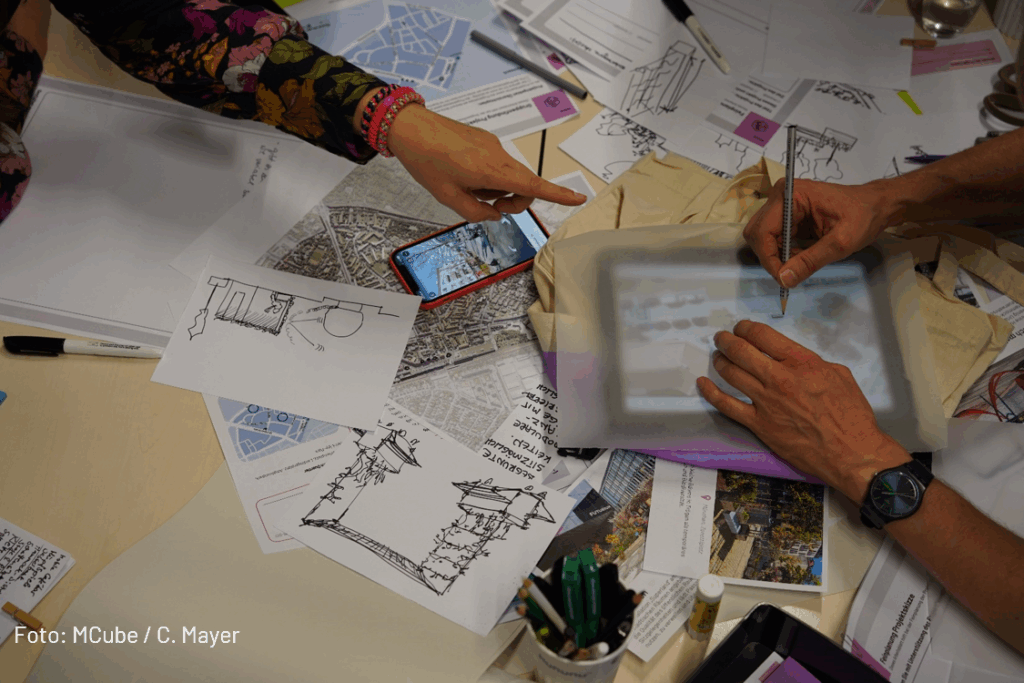
Last Saturday (25.10.2025), committed Moosach residents worked in small groups with experts from the MOSAIQ project team on exciting project outlines in the project forge. Concrete approaches for the project district in Moosach were developed from ideas collected in advance in the district. The project outlines make suggestions ranging from greening and mobility to more quality of life - a great example of how much creativity and commitment there is in the neighborhood.
The Project Forge is part of the MOSAIQ Ideas Forum. You can find more information about the ideas forum, what happens to the project outlines now and when the project outlines will be exhibited at here.
There are currently no new posts Reset filters?
How do children perceive the neighborhood in Moosach? What do they want?
Together with class 5b from Moosach secondary school, we collected photo stories in July 2025. The results are now presented in a small exhibition - come by, take a look at the photos and discover what the children want for their neighborhood!
The opening of the exhibition will take place on Wednesday, 29.10.2025, at 16:30 at the Dialogpunkt Bunzlauer Straße, corner of Breslauer Straße.
In case of rain, the event will take place in the Moosach district store, Dachauer Straße 270b.
We look forward to your visit and exciting discussions!
Then come to our on-site appointments! You can find us on the following dates at our dialog point on Hohenzollernplatz:
All people who live in the project neighborhood, work or often spend time there are invited, in our survey to participate. To the residents since October 6 Letters with link and personal participation codes for the online survey distributed. Have a look in your letterboxes to see if you already received a letter from the Technical University of Munich. The letter contains all further details about the survey. If you do not receive a letter from us in your mailbox, please contact us - participation is still possible.
Please bring the invitation with your participation code to the on-site appointment. We look forward to seeing you!
Then come to our on-site appointments! You can find us on the following dates in the Moosach district store, Dachauer Straße 270b:
All people who live in the project neighborhood, work or often spend time there are invited, in our survey to participate. To the residents since October 6 Letters with link and personal participation codes for the online survey distributed. Have a look in your letterboxes to see if you already received a letter from the Technical University of Munich. The letter contains all further details about the survey. If you do not receive a letter from us in your mailbox, please contact us - participation is still possible.
Please bring the invitation with your participation code to the on-site appointment. We look forward to seeing you!
There are currently no new posts Reset filters?

The project will be implemented in several phases:
Experienced partners from science, administration, business and society work together in MOSAIQ under the leadership of the Technical University of Munich.
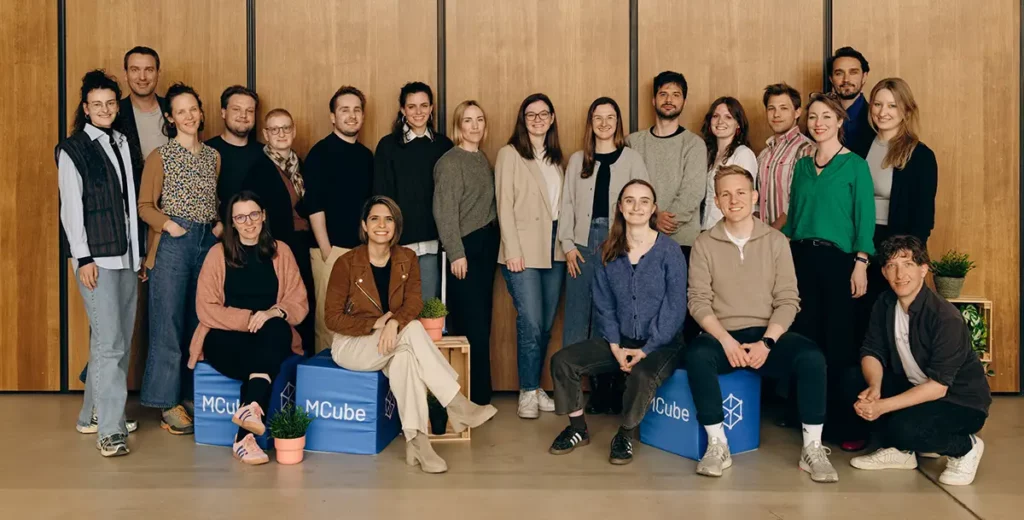
At the Professorship for Urban Design at the Technical University of Munich (TUM), we work in an interdisciplinary team on urban life and its design in research and teaching. Among other things, we are interested in the connections between the city and mobility as well as the debate about life in the city. The professorship was already involved in the aqt and TrEx projects in MCube Phase I; in Phase II it is leading the MOSAIQ project.
On Chair of Settlement Structure and Transport Planning at TUM, we research how cities and other forms of settlement and transportation can be designed in such a way that all people can travel sustainably and reach their destinations with the shortest possible distances. We develop methods to identify gaps in this accessibility and work with society and practitioners to develop solutions for sustainable, liveable and equitable urban development. In MCube Phase I, the Chair was involved in the real-world laboratory project aqt and other projects.
On Chair of Automotive Engineering (FTM) at TUM, we are researching the mobility behavior of users in the "Smart Mobility" working group by collecting and analyzing data and developing new mobility systems based on this. With the help of simulations, we can model users, vehicles and infrastructure and evaluate future scenarios. The "Autonomous Vehicles" and "Electric Vehicles" working groups, which are also based at the Chair, expand our knowledge along the entire value chain of automotive mobility.
The Mobility Unit (MOR) is the central point of contact for all strategic issues relating to mobility and transportation in Munich. Our goal is equal and safe coexistence on our roads and a better quality of life in Munich.
Our topics in the Department of Urban Planning and Building Regulations (PLAN) of the City of Munich are wide-ranging. They range from urban development planning, urban land-use planning and approval of buildings to monument and tree protection. We also have a special focus on the design of green and open spaces for recreation and climate adaptation. This ensures Munich's qualities as a liveable place to live, work and spend leisure time.
In the Department for Climate and Environmental Protection (RKU) As part of the MOSAIQ project, we are providing technical contributions and basic data on climate adaptation and green infrastructure (especially tree planting) in street planning and in existing neighborhoods. With the help of microclimatic simulations, we analyze the performance of greening measures there and incorporate the results into the rest of the project.
Climateflux is a company specializing in microclimate analyses that combines high-resolution simulations with citizen knowledge on heat perception. Using participatory tools such as Climatewalks, we collect data together with residents and planners to precisely assess urban heat islands and comfort needs. Our software solutions translate these findings into climate-resilient urban design - scientifically sound and oriented towards the common good.
eVehicle operate public cargo bike sharing and develop sharing services that combine e-cargo bikes, bicycles, e-bikes and e-cars. Our implementation concepts are aimed at residential districts, companies and municipalities that use sharing modules to reduce land consumption and CO² emissions and provide practical and flexible riding fun. The services are easy for residents to use via an app. User feedback is very important to us in order to improve the service. In Munich, we want to put a total of 100 e-cargo bikes on the streets and in residential areas for our users, so that an attractive alternative to the car is available for all kinds of transportation trips.
In a VePa-tower, there are 12 parking spaces - on just 49 square meters. This means that cars take up less space in the city. And there is more space for cyclists, trees and play areas. The parking towers also offer charging facilities for electric cars. This is important for the traffic turnaround.
The Hans Sauer Foundation is a non-profit foundation for the promotion of science and research. We are concerned with shaping social change, creating links between science, administration, business and civil society. By incorporating diverse perspectives and different stakeholders, we aim to contribute to socially sustainable knowledge.We do this through the use of participatory and co-creative methods.
TheFraunhofer IAOis a practice-oriented research institute that supports the development and implementation of innovative ideas for mobility, work and urban life. At the interface between science, business, municipalities and society, we play a central role in the testing, scaling and transfer of pioneering technologies in urban areas. As an associated partner of the MOSAIQ consortium, we support the MCube cluster in replicating sustainable mobility solutions and thus actively driving forward social transformation processes.
The Green City e.V. is committed to a green Munich worth living in. We want to make it easy to get involved in the Mosaiq project. Ambassadors help to collect and pass on information.
The University of the Federal Armed Forces Munich researches safe and sustainable mobility solutions, especially how the transport infrastructure influences the behavior and safety of users.
STATTAUTO Munich Carsharing has been in existence since 1992 and successfully celebrated its 30th anniversary in 2022. Today, more than 17,000 STATTAUTO Munich users share around 450 vehicles at over 145 stations in the city and surrounding area of Munich.
The EntrepreneurTUM is Europe's leading center for innovation and start-ups. Here, people with ideas are supported in developing sustainable start-ups and pioneering technologies. In the MOSAIQ project, we specifically support the implementation of environmentally friendly forms of mobility and participatory approaches - so that research is put into practice and finds its way into the economy.
The Experience Consulting GmbH supports municipalities and research institutions in the planning, implementation and research of urban development measures. At MOSAIQ, we form an interface between research and citizens in order to incorporate their needs, ideas and opinions. We use various methods to involve different target groups and rely on creative approaches such as pop-up campaigns, playful methods and lottery procedures to reach even hard-to-reach groups.
We are researching the Professorship for Innovation Research at TUM are investigating how mobility can be designed to be socially just, sustainable and suitable for everyday use - together with citizens, local authorities and partners in practice. In workshops, real-world laboratories and dialog formats, we develop ideas for sustainable mobility that is geared towards people's needs.
On Chair of Landscape Architecture and Public Space At TUM, we deal with the design and significance of public space in the context of social and ecological challenges. In doing so, we rely on participatory approaches from various disciplines in order to expand the way we work in landscape architecture.
There are no results matching your search

Lorem ipsum dolor sit amet, consetetur sadipscing elitr, sed diam nonumy eirmod tempor invidunt ut labore et dolore magna aliquyam erat, sed diam voluptua. At vero eos et accusam et justo duo dolores et ea rebum.

Lorem ipsum dolor sit amet, consetetur sadipscing elitr, sed diam nonumy eirmod tempor invidunt ut labore et dolore magna aliquyam erat, sed diam voluptua. At vero eos et accusam et justo duo dolores et ea rebum.

Lorem ipsum dolor sit amet, consetetur sadipscing elitr, sed diam nonumy eirmod tempor invidunt ut labore et dolore magna aliquyam erat, sed diam voluptua. At vero eos et accusam et justo duo dolores et ea rebum.
Subscribe to our mailing list and stay up to date!
E-Mail: mosaiq@mcube-cluster.com
By telephone: Mondays from 9-11 a.m.
under 01575 - 6400400
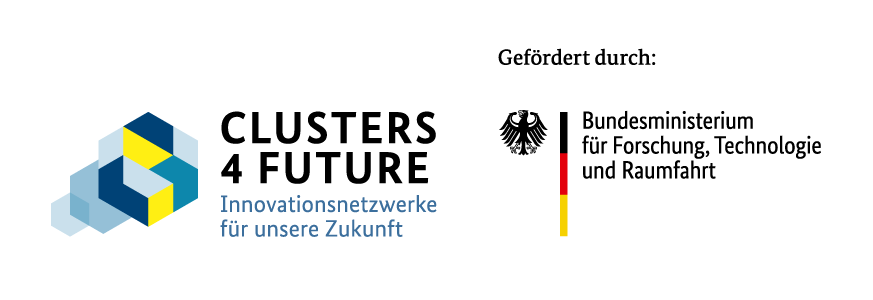
ما هو مشروع موزايك؟
موزايك هو واحد من تسعة مشاريع في المرحلة الثانية من مجمع أبحاث MCube - "مجمع ميونيخ لمستقبل التنقل في المناطق الحضرية". يضم هذا المجمع أكثر من 80 شريكًا من قطاعات العلوم والأعمال والمجتمع والإدارة، بقيادة جامعة ميونيخ التقنية، بتمويل من الوزارة الاتحادية الألمانية لللبحث والتكنولوجيا والفضاء (BMFTR).
موزايك هو اختصار لعبارة "التنقل والمناخ الحضري في الأحياء المستقبلية". في هذا المشروع، يعمل فريقنا على تصميم أحياء سكنية ملائمة للعيش في ميونيخ. نهدف إلى تطوير مناهج مبتكرة وشاملة لتحسين التنقل والمناخ الحضري وجودة الحياة في الأحياء بشكل مستدام. بالتعاون مع المواطنين وأصحاب المصلحة المحليين، نعمل على تطوير حلول من شأنها أن تجعل الأماكن العامة أكثر حيوية واستدامة.
ما هي أهداف المشروع؟
في MCube MOSAIQ، نلتزم بالعمل مع المواطنين وأصحاب المصلحة المحليين الآخرين لتحويل الأحياء إلى أماكن تُواجه تحديات تغير المناخ والتنقل الحضري في ظل ندرة المساحات العامة.
يركز المشروع على ما يلي:
تحسين التنقل للجميع: سفر أسهل وأكثر أمانًا - على سبيل المثال، سيرًا على الأقدام، أو بالدراجة، أو من خلال خيارات التنقل المشتركة التي تُسهّل الحياة اليومية.
تحسين جودة الحياة: أماكن أكثر تُشجع الناس على الاسترخاء والشعور بالراحة - لتحسين جودة الحياة في الحي.
التكيف مع تغيرات المناخ الحضري: المزيد من المساحات الخضراء - لأيام صيف أكثر برودة، وهواء أنظف، وحماية من آثار الأمطارغزيرة.
توزيع مساحات الشوارع بشكل مستقبلي: مساحة أكبر للجميع - للمشي، والاسترخاء، أو لأماكن التجمع الخضراء في الحي.
تعزيز المجتمع: أماكن لقاء جديدة وفرص لللتعرف على الحي بشكل أفضل والمساهمة في تشكيله.
ما الذي يحدث في الحي؟
سيتم تنفيذ المشروع على عدة مراحل:
٢٠٢٥: بدء العمل بنماذج المشاركة والبحث.
٢٠٢٦: تطبيق تجريبي محدود المدة للأفكار الفردية المشتركة في المساحات العامة.
٢٠٢٧: تقييم العملية حتى الآن والتوقعات.
Što je MOSAIQ?
MOSAIQ jedan od devet projekata u drugoj fazi istraživačkog klastera MCube - "Münchenski klaster za budućnost mobilnosti u metropolitanskim regijama". Klaster, koji obuhvaća preko 80 partnera iz znanosti, gospodarstva, društva i uprave, a predvodi ga Tehničko sveučilište u Münchenu, financira njemačko Savezno ministarstvo za istraživanje, tehnologiju i svemir (BMFTR).
MOSAIQ je kratica za "Mobilnost i urbana klima u budućem susjedstvu". U ovom projektu naš tim radi na projektiranju ugodnih susjedstava u Münchenu. Cilj nam je razviti inovativne i holističke pristupe za održivo poboljšanje mobilnosti, urbane klime i kvalitete života u susjedstvima. Zajedno s građanima i lokalnim dionicima razvijamo rješenja koja će javne prostore učiniti življima i održivijima.
Koji su ciljevi projekta?
U MCube MOSAIQ-u posvećeni smo suradnji s građanima i drugim lokalnim dionicima kako bismo transformirali susjedstva u mjesta koja odgovaraju na izazove klimatskih promjena i urbane mobilnosti u oskudnom javnom prostoru.
Projekt se fokusira na sljedeće:
Što se događa u susjedstvu?
Project će se provoditi u nekoliko faza:
Что такое MOSAIQ?
MOSAIQ - один из девяти проектов второй фазы исследовательского кластера MCube - "Мюнхенский кластер будущего мобильности в мегаполисах". Кластер, объединяющий более 80 партнеров из науки, бизнеса, общества и администрации под руководством Мюнхенского технического университета, финансируется Федеральным министерством исследований, технологий и космоса (BMFTR).
MOSAIQ расшифровывается как "Мобильность и городской климат в будущих кварталах". В рамках проекта наша команда работает над проектированием пригодных для жизни кварталов в Мюнхене. Мы хотим разработать инновационные и целостные подходы к устойчивому улучшению мобильности, городского климата и качества жизни в кварталах. Вместе с жителями и местными заинтересованными сторонами мы разрабатываем решения, позволяющие сделать общественные пространства более динамичными и устойчивыми.
Каковы цели проекта?
В рамках проекта MCube MOSAIQ мы стремимся работать с жителями и другими местными участниками, чтобы превратить районы в места, отвечающие требованиям изменения климата и городской мобильности в условиях дефицита общественного пространства.
Проект сосредоточен на следующих направлениях:
Что происходит в районе?
Проект будет реализован в несколько этапов:
¿Qué es MOSAIQ?
MOSAIQ es uno de los nueve proyectos de la segunda fase del clúster de investigación MCube, el "Clúster de Múnich para el Futuro de la Movilidad en las Regiones Metropolitanas". Este clúster, compuesto por más de 80 socios de los ámbitos científico, económico, social y administrativo, está coordinado por la Universidad Técnica de Múnich y es financiado por el Ministerio Federal de Investigación, Tecnología y Exploración Espacial (BMFTR).
MOSAIQ signfica "Movilidad y Clima Urbano en el Barrio del Futuro". En este proyecto, nuestro equipo trabaja en el diseño de barrios habitables en Múnich. Queremos desarrollar enfoques innovadores y holísticos para mejorar de forma sostenible la movilidad, el clima urbano y la calidad del espacio público en los barrios. En colaboración con la ciudadanía y actores locales, estamos desarrollando soluciones para hacer que los espacios públicos sean más vibrantes y sostenibles.
¿Cuáles son los objetivos del proyecto?
En MCube MOSAIQ nos comprometemos a trabajar con los ciudadanos y otros actores locales para transformar los barrios en lugares que respondan a los retos del cambio climático y la movilidad urbana en el espacio público que es limitado.
El proyecto se centra en las siguientes áreas:
¿Qué está ocurriendo en el barrio?
El proyecto se llevará a cabo en varias fases:
Qu'est-ce que c'est, MOSAIQ?
MOSAIQ is one of the nine projects of the second phase of the MCube research cluster - the "Cluster de Munich pour l'avenir de la mobilité dans les régions métropolitaines". This cluster of more than 80 partners from the scientific, economic, social and administrative worlds, led by the University of Munich, is supported by the German Federal Ministry of Research, Technology and Space (BMFTR).
MOSAIQ is the abbreviation for "Mobilité et climat urbain dans les quartiers du futur". Within the framework of this project, our team focuses on the development of neighborhoods where it is good to live in Munich. We want to develop innovative and global approaches to sustainably improve mobility, the urban climate and the quality of living in neighborhoods. In collaboration with residents and local stakeholders, solutions are thus created to make public space more vibrant and more viable.
What are the objectives of the project?
In MCube MOSAIQ, we are committed, in collaboration with residents and other local stakeholders, to creating neighborhoods that respond to the challenges of climate change and urban mobility in a limited public space.
The project emphasizes the following points:
Que se passe-t-il dans le quartier?
Le projet sera mis en œuvre en plusieurs phases:
MOSAIQ nedir?
MOSAIQ ("mozaik" şeklinde okunur) MCube araştırma ağının ikinci aşamasında bulunan "Metropol Bölgelerinde Kentsel Hareketliliğin Geleceği için Münih İş Birliği Kümesi" nin dokuz projesinden biridir. Münih Teknik Üniversitesi liderliğinde bilim, iş dünyası, toplum ve idari birimlerden 80'in üzerinde paydaşın yer aldığı küme, Federal Araştırma, Teknoloji ve Uzay Bakanlığı (BMFTR) tarafından maddi olarak desteklenmektedir.
MOSAIQ ismi, "Geleceğin Mahallelerinde Hareketlilik ve Kentsel İklim" kelimelerinin Almanca akroniminden oluşmaktadır. Ekibimiz bu kapsamında Münih'te yaşanabilir mahallelerin tasarımı üzerinde çalışmaktadır.
Mahallelerdeki kentsel hareketliliği, iklimi ve yaşam kalitesini sürdürülebilir bir şekilde iyileştirmek için yenilikçi ve bütüncül yaklaşımlar geliştirmek istiyoruz. Bu şekilde kent sakinleri ve yerel paydaşlarla birlikte, kamusal alanları daha canlı ve sürdürülebilir hale getirmek için çözümler geliştiriyoruz.
Projenin hedefleri nelerdir?
MCube MOSAIQ ekibi olarak, kent sakinleri ve yerel paydaşlarla beraber mahalleleri, kamusal alanlardaki kısıtlı kentsel hareketliliğin ve iklim değişikliğinin zorluklarına karşılık verebilecek alanlara dönüştürmeyi çabalıyoruz.
Proje aşağıdaki alanlara odaklanmaktadır:
Mahallede neler oluyor?
Proje birkaç aşamayla uygulanacaktır:
What is MOSAIQ?
Imagine something: There is more space for people. The streets have more trees and plants. Everyone can get around better. That's how your Schwabing-West district could be in the future. How would you like your district to be? We want to talk to you about it!
The project is called MOSAIQ. MOSAIQ is a research∙project. MOSAIQ means: Mobility and urban climate in the future city∙part. The Technical University of Munich is leading the project.
What is MOSAIQ about?
MOSAIQ wants to make the streets in the city∙part more beautiful. People should feel comfortable there. There should be more space. For meetings and plants, for example. You can help decide what is tried out in the Stadt∙teil. The ideas come from you. Some ideas will be tried out on the streets for a certain period of time.
The aim of MOSAIQ is to make urban districts good places to live.
At the same time, the climate in the city should improve. And people should be able to move around the city easily.
What is happening in the district?